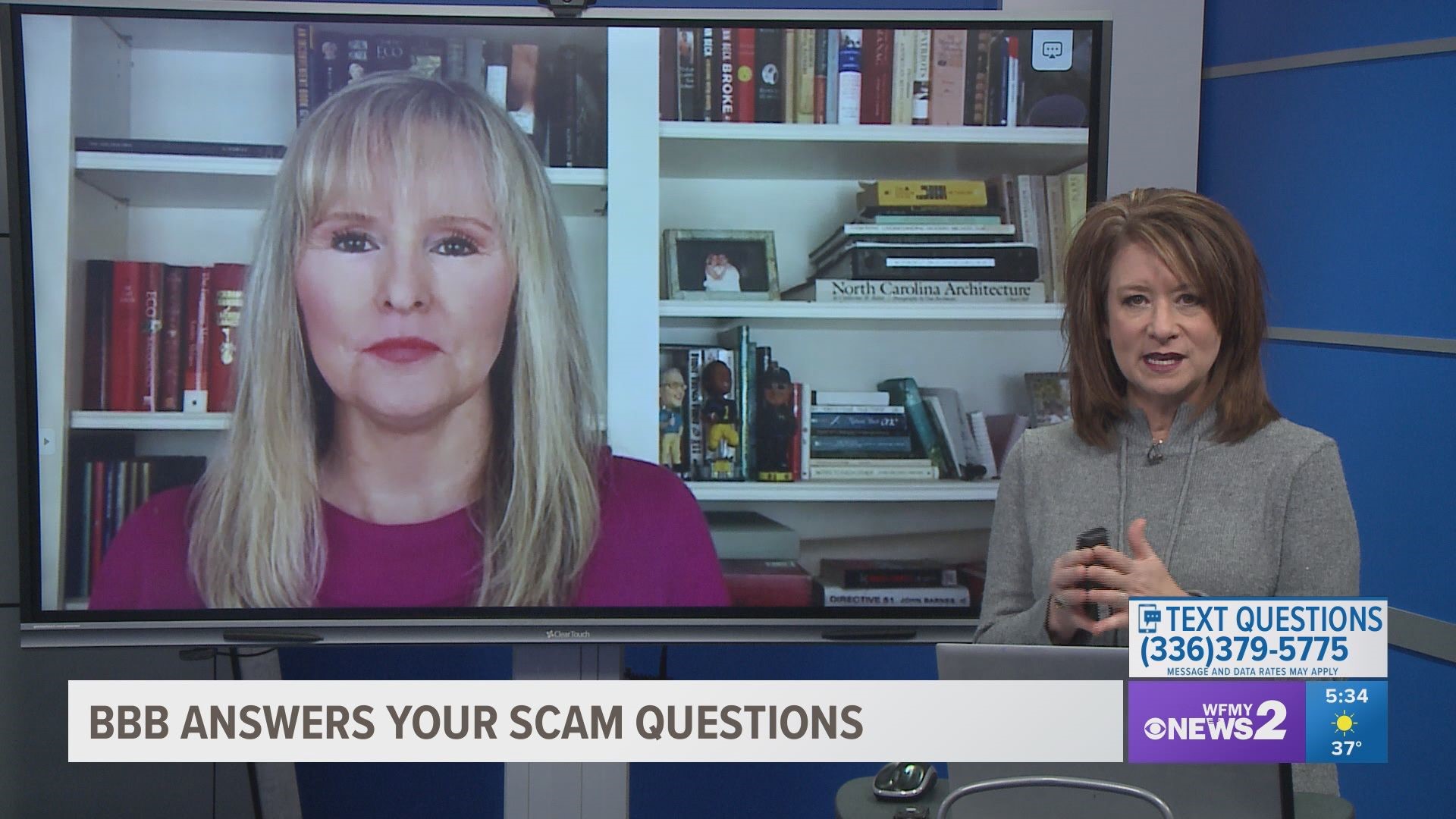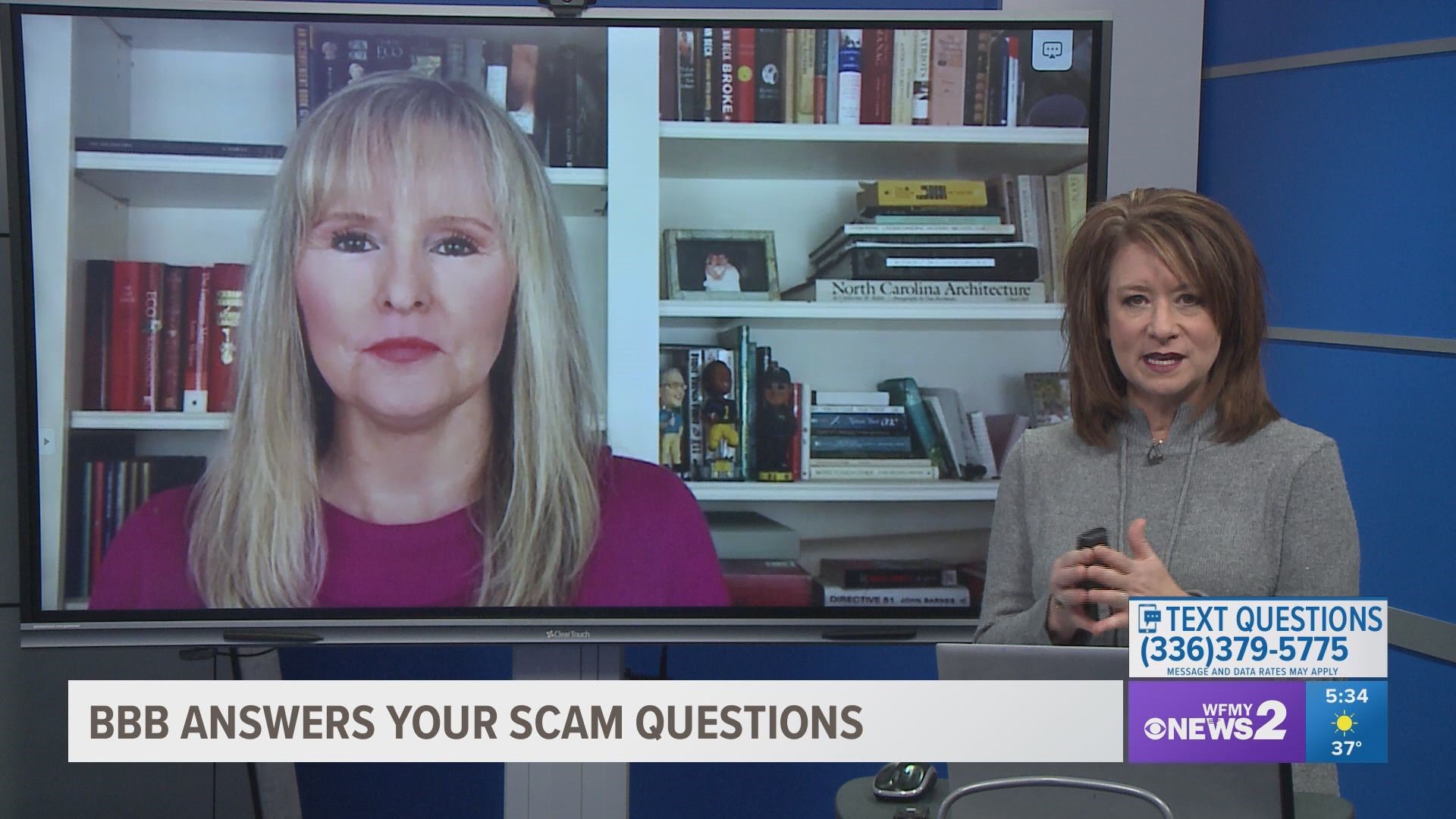GREENSBORO, N.C. — Scammers are getting more and more creative at getting your hard-earned money. It can be frustrating.
We spoke with Lechelle Yates from the Better Business Bureau to learn what new tactics scammers use and how you can protect yourself.
Fake Coupon Scams
Web/social media ads ask you to subscribe to a coupon service for a monthly fee. Scammers then get your money and credit card information.
Do not trade personal info for perks and google the coupon offer and the word "scam".
"Do a Friend a Favor" Gift Card Scam
You get an email from a friend asking for help. They want you to get the money with a gift card with the promise of paying you back. To avoid this scam, call or text your friend. Gift cards are like cash. Once it is gone, it is gone.
COVID-19 Test Scams
The FDA has a list of approved tests. Make sure the names match up.
Do a quick search of the website or company name and then the words “scam” or “complaint” and see if anything pops up.
Pay with your credit card, not your debit card. This way, if you get charged for something that is not right, or you never get the product, you can dispute the charge.
Account takeovers
Account takeovers happen when scammers get into your account. Instead of making a few purchases, the scammer will change the password or pin to limit your access. Then, they will reroute communication them, so you will not know you were scammed until much later.
Yates said you should verify with a company if they sent you a message. You should also never click on links from someone you do not know.
Text scams
Yates said she saw scammers use the pandemic as a way to exploit people. They would send messages pretending to be a company so people would click on a link. Then, it would give scammers access to their personal information after the person logs into their account.
Yates provided three examples of scam text messages reported to the BBB.
- “COVID-19 REFUND. VERIZON COMPANY is giving out $950 to all users of our Verizon service, If yes, kindly text your Verizon”
- “Due to the pandemic, Hulu is giving everyone a free 1-year subscription to help you stay at home. Get yours here [link]."
- "Netflix... Sorry for the coverage issues... Here's a little gift: [link]"
The scams are not limited to Hulu, Netflix, and Verizon. Scammers can use any company to try to deceive you. The messages do not originate from those companies. Verify any messaging if you are unsure.


